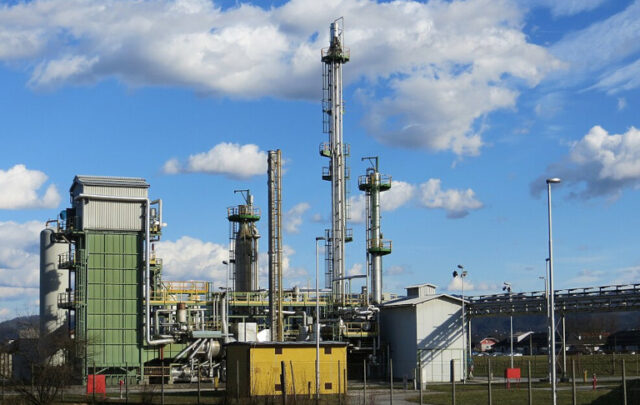Click on the headline (link) for the full text.
Many more articles are available through the Energy Bulletin homepage
Dialoguing with Dr. Peter Jackson
Luís de Sousa, The Oil Drum: Europe
As a sequel to CERA’s report Why the “Peak Oil” Theory Falls Down — Myths, Legends, and the Future of Oil Resources, Dr. Peter Jackson was given a guest editorial in this month’s edition of the Journal of Petroleum Technology, entitled Peak Oil Theory Could Distort Energy Policy and Debate. This article ends with this sentence:
We invite others to join in a considered dialogue that now seems too easily lost in the rancor.
Compelled by these words some reflections follow, regarding Dr. Jackson’s arguments and understanding of the Hubbert’s Peak.
(21 Feb 2007)
We must have published or linked to dozens of responses to the CERA report. So far, we’re still waiting for a reply. -BA
Vive le pétrole cher (Hooray for expensive oil)
Libération
The French newspaper Libération has a special online section devoted to peak oil and related topics. Many of the articles were first published last year, but the site has been updated recently. Everything is in French. Sample articles:
- «La maison brûle et tout le monde regarde ailleurs!» (Pays émergents en pleine croissance, production insuffisante, asphyxie générale… Est-ce la fin du tout-pétrole? Trois économistes décryptent la nouvelle donne.)
- Colin Campbell – Prédicateur de la fin (Le géologue à la retraite, qui a exploré durant toute sa carrière la planète pétrole, donnait l’alerte du déclin dès 1989. Il est enfin pris au sérieux.)
- Dernier appel pour le vol transatlantic 2026 (L’écrivain de science-fiction Jean-Pierre Andrevon a imaginé pour “Libération” ce que sera notre monde quand le pétrole aura disparu)
(last updated 22 Feb 2007)
Oil prices likely to dip – but not far
Brian Fallow, New Zealand Herald
World oil prices will continue to fall, BP’s chief economist Peter Davies believes, but probably not back to the levels prevailing earlier in the decade.
“We expect prices to stay over US$40 a barrel for the next three or four years at least,” said Davies, in Wellington for an international energy economists conference.
He readily acknowledges that like his peers he failed to predict the jump in the oil price between 2004 and 2006 when it rose from around US$27 to a peak of US$78 last August. It was US$58 yesterday. ..
Despite concerns about “peak oil”, global proven oil reserves continued to rise, Davies said. That is, the amount of oil that could be produced with today’s technology and economics was increasing faster than it was being depleted. At 1.2 trillion barrels it represented about 40 years’ supply at today’s rate of consumption.
“Energy policy should not be based on expectations that oil will run out,” he said. Nor should it be based on concerns that falling production within OECD producers such as the United States, Britain, Norway and Australia implied increasing reliance on the Middle East.
“The share of world reserves represented by the Middle East has not been going up,” he said. “But we are becoming more reliant on Russia, and we are seeing in non-OECD countries a tendency towards resource nationalism.”
As for biofuels, BP has committed to investing $500 million, concentrating not on producing ethanol from corn – which people or livestock can eat – but from cellulosic sources like agricutural wastes or switch grass grown on marginal land. ..
(21 Feb 2007)
Contributor tochigi writes: Another oil major reassures the world all is well because reserves are increasing–but fails to explain how this alleged reserves growth will help daily production to grow sufficiently to meet rising demand.
—
..or match depletion of existing fields or growing domestic demand in the decreasing number of oil exporting countries.-LJ
Orlov interview (part 2)
KMO, C-Realm Podcast
In this 21st episode, we conclude the talk with Dmitry Orlov which includes a rough detour through singularitarian meme-space. After that we hear from Australian science writer Margaret Wertheim and talk about our evolving notions of space.
(21 Feb 2007)
Another site for energy news
Herman K. Trabish, New Energy News
“Gleanings from around the web and around the world, condensed for convenience, illustrated for enlightenment, arranged for impact.”
(Feb 2007)
The Energy Impact of Our Buildings (PDF)
Pat Murphy, The Community Solution
Peak Oil and climate change require a revolutionary approach to all aspects of our lives. To date much attention has been placed on the automobile’s use of energy with secondary emphasis on food. But the energy used (and CO2 generated) by the automobile or from food production is less than the energy used in our buildings. Furthermore, building energy consumption has been continually increasing in spite of improvements in building and appliance efficiency. Once more we are reminded that our problems are not solvable simply by improving technology.
It is important to determine the appropriate context when considering energy consumption relative to buildings. There must be a deep understanding of the current building infrastructure and the choices that have been made in the past decades that have resulted in this particular set of buildings. It is also important to grasp the concept of embodied and operating energy and the implications. Understanding a building as a container for a large number of appliances that use energy is vital. Perceiving the limitation of technical fixes is equally important.
This report delves deeply into energy consumption in the home component of the total building infrastructure.
…
Summary:
The largest consumer of energy in the U.S. is the buildings in which we live and work. Ninety percent of our time is spent inside buildings, and they increase in size each year. American homes are twice the size of European and Japanese homes. They are excessively large and waste massive amounts of energy.
Since buildings have a long life span – most buildings currently in existence will still remain after the depletion of oil – it will not be possible to replace them with new energy-efficient buildings because of the cost and use of resources, including fossil fuels. The only sensible option is to begin a major retrofit of all buildings to reduce their energy consumption.
Government and the building industry tend to oppose legislation to alter building codes towards efficiency, so it will be up to individuals to make choices for an energyconstrained world. Individuals would be well advised to develop the understanding of building energy consumption along with the skills to upgrade their homes. The process will not be cheap in time or money.
Finally, we must also change our shortsighted habits and realize that our personal choices will make a difference. Continuing to live and consume energy in a modern home is like continuing to drive a low- MPG car. Our children and grand children will not thank us for it. We must change from a world view of consumption to one of conservation, choosing to share resources across the world and with those yet to be born.
(Jan 2007 issue)
Detailed summary of the field of green building, relating it to peak oil.





